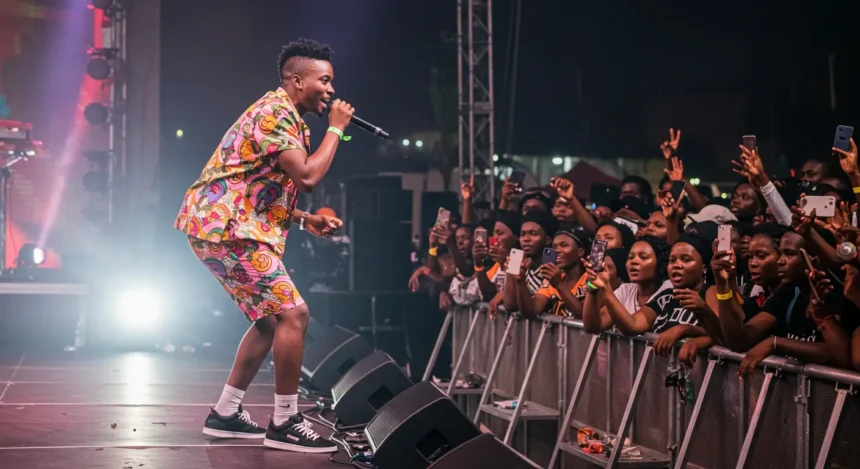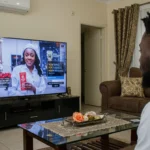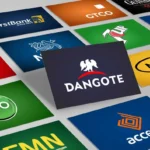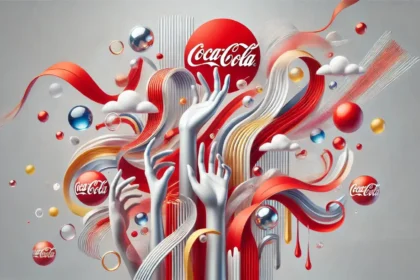“We are not our parents’ generation. We stream it, vibe it, TikTok it, and if it slaps – we make it trend,” said Jennifer, a student of computer science at one of the nation’s private universities.
This could easily be the unofficial mantra of Nigeria’s Gen Z – a bold, expressive, and digitally fluent generation rewriting the rules of music discovery and creation. And if there’s one genre that has embodied this rebellion and reinvention, it’s Afrobeats.
From the sweaty clubs of Surulere to playlists curated in London, Lagos, or Atlanta, Nigerian youth are leading a new musical uprising – one powered not just by beats, but by algorithms, smartphones, and unapologetic authenticity.
The Gen Z revolution is not just digital – It’s cultural. Let’s be honest. Gone are the days when record labels or Alaba pirates dictated who blew up and who didn’t. Today, a single viral challenge on TikTok can launch a previously unknown artist into global stardom. Ask Odumodublvck whose gritty, genre-bending sound in Declan Rice defied categorization, yet earned him cult followership. Or take Ayra Starr, the celestial Gen Z voice of Mavin Records, who went from posting covers on Instagram to headlining international festivals. Her Gen Z, bad girl energy – from fashion to lyrics – speaks the language of a digitally native audience who value vulnerability, vibes, and visibility.
For Gen Z, music is not just entertainment – it’s a badge of identity, a protest, a vibe, and sometimes a diary entry delivered in harmony. I sat with some Gen Z guys to gist after Sunday service. I did my best to come to their level and nature to understand them. As we were ‘gisting’ – since it appears that’s one of the ways to enjoy their company, I didn’t realise when I asked them – “so what really drives your music interest and consumption pattern and how do you consume music.” Initially they stalled. Suddenly one of them – Andrew Chinedu – Architecture student, University of Lagos, UNILAG, started speaking and the others joined. The following is what I jotted from their responses.
What’s Driving the Trend? A Trifecta of Tech, Taste & Tempo
Streaming Killed the Radio Star
Spotify, Audiomack, Apple Music – these platforms have democratised access, allowing even unsigned artists from Ibadan or Benin to chart globally. With localized playlists like Naija Hits and African Heat, Gen Z curates and consumes in real-time.
TikTok is the New A&R
From Ruger’s Asiwaju to Khaid’s Jolie, it wasn’t the FM stations that made these songs hot – it was TikTok dance challenges, meme culture, and viral duets. It’s music promotion in motion – 30 seconds of magic, and your career might explode.
They Want Realness, Not Filters
Unlike Millennial artists who perfected polish, Gen Z artists like Bloody Civilian, SGaWD, and Somadina are raw, experimental, and don’t mind sounding “imperfect.” They rap, sing, scream, whisper – and still find an audience. Authenticity trumps autotune.
Afrobeats to the World – But with Nuance
While Burna Boy, Wizkid, and Davido still command stadiums, the new wave is fragmented and fearless. They mix genres freely – Afro-trap, Afro-rave, drill, alté, soul – and reject the label “Afrobeats” as a one-size-fits-all.
Emerging talents like Tay Iwar, Odunsi (The Engine), Fave, and Tempoe are curating a more eclectic sound that isn’t built for radio, but for earbuds, reels, and retweets. “Afrobeats is no longer just a sound – it’s an aesthetic, a mood-board, a way of existing online,” emphasises Andrew the very vocal among them. He said, “Young Nigerians are now the influencers and the audience, the critics and the consumers.”
After my somewhat ethnographic interaction with them, I asked myself: “What Could This Mean for Music Brands and Marketers. I concluded with the following summary:
Micro-influencers and Celebs: A TikTok user with 5K followers who choreographs a slick dance can drive more streams than a celebrity endorsement.
Personal storytelling wins: Songs that reference school life, ASUU strikes, relationships, hustle – relatable struggles – are more likely to connect than flashy brags.
Interactive music is king: Fan-made content (duets, remixes, memes) powers the algorithm more than traditional promo. So, whether you’re a brand manager, DJ, playlist curator, or just a fan, here’s the memo: if it doesn’t trend, it’s dead. If it doesn’t feel true, it won’t last.
Soundbites from the Streets
We asked a few Gen Z music heads across Nigeria what music means to them today: “Afrobeats is not just a sound. It’s therapy. It’s how we escape this hard country and still feel cool doing it.” – Deborah, 21, UniLag student & TikTok creator
“I don’t follow the artist – I follow the vibe. If your song speaks to my 9-5 hustle or heartbreak, I’ll loop it all day.” – Rasaq, 24, product designer & Audiomack junkie
“The next music superstar isn’t in Lekki. He’s somewhere in Osogbo with a cracked iPhone and GarageBand.” – Mayowa, 19, content creator
The Sound is Digital, But the Soul is Nigerian
In a world of swipe-up attention spans and streaming stats, it’s easy to forget that at the heart of Nigeria’s music explosion is storytelling, struggle, and swagger. Gen Z isn’t just changing how music is consumed – they’re reprogramming the entire ecosystem. So, the next time a track drops and a TikTok dance pops off, don’t just dance – pay attention. Because behind every beat drop is a generation demanding to be heard – on their own terms.
Got an artist you think defines this Gen Z sound? Tag us on Instagram @BrandiQEnvogue and use the hashtag #GenZSound. Want to feature your playlist or music review? Send a DM or send an email to: editor@brandiq.com.ng







